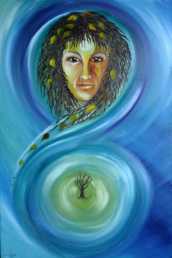Introducing our fantasy blog when greenYgrey flew the corn crake nest, Jack Wolfpac seemed to regress into a 1950s state, citing the influence of the muse.
This is how easy it is to mention concepts without scientific proof, like the use of God.
However, nobody has gone to war over the muse, such as armies of Shakespearians declaring war on the readers of Cervantes over whose muse was the best!
Hi, it’s Stephen Werewolfing, science correspondent at the greenYgrey inspired by Stephen Hawking in the human world.
Jack’s musing did inspire me to search for a scientific explanation for those a-musing moments of creative inspiration, and below is what I found.
A-musing science
We have discussed the human brain in a previous article on this site, focusing on how the Gyri (ridges) and Sulci (crevices) sounded quite greenygrey when put together.
However, that doesn’t explain the muse, so how does science explain those creative moments writers like to think of the muse calling.
Another science article explains that:
‘In your everyday work the frontal lobes actually play gatekeeper role, which decreases your ability to come up with creative solutions.
It sounds surrealistic, but when you let your mind wander, your frontal lobes go into some kind of temporary sleep mode, allowing ideas to flow more freely. This temporary brain state makes it easier for ideas to flow from your unconscious into your conscious mind and bright ideas to occur.
On both sides of the brain you have a brain lobe called the temporal gyrus, and this is the creative spot, where the flashes of insight occur.’
And it isn’t just a case of right side creative and left side logical:
‘The brain cells in your left hemisphere have short dendroids, useful for pulling in information from nearby. But the cells on the right branch out much wider and pull in distant unrelated ideas in the brain. It’s here the novel connections between concepts are made – this is where the magic happens.’

Link for Amazon book and kindle.

Link for multiple Ereaders at Smashwords.






